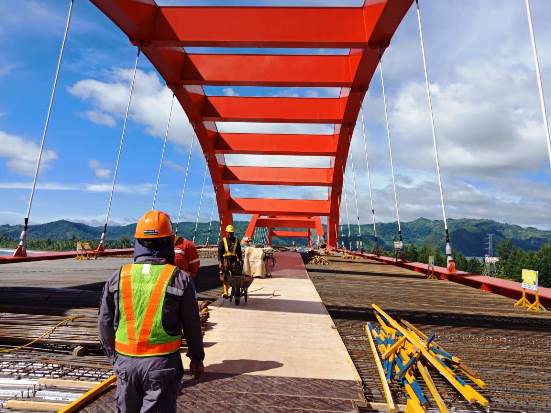Papua Development, Main Axis of Indonesian Economic Improvement
Indonesia, as the largest archipelagic country in the world, has abundant natural wealth. One of the regions rich in natural resources is Papua, which is the main axis in efforts to improve the national economy. Papua’s development is not only the responsibility of the central government, but also involves the active role of the community and the private sector to create sustainable economic growth.
Papua, with an area of around 420 thousand square kilometers, has great economic potential. The diversity of natural resources such as mines, forests and fisheries provides a significant market share for Indonesia. Gold, copper and natural gas are some of the main commodities that can increase state revenues substantially. Apart from that, Papua’s cultural diversity is a special attraction, with potential for a sustainable tourism sector.
Improving Papua’s economy requires the development of supporting infrastructure. The government has committed to improving connectivity through the construction of roads, ports and airports. Good infrastructure will facilitate the distribution of Papua’s economic results to national and international markets. Apart from that, good connectivity will also open up accessibility for the tourism sector, invite investment and support inclusive economic growth.
Deputy for Economics at the Ministry of National Development Planning/National Development Planning Agency (PPN/Bappenas) Amalia Adininggar Widyasanti stated that the blue economy is an important key to Papua’s economic transformation. He saw that there was some blue economy potential in various districts and cities in Papua. Starting from Biak Numfor, namely tuna fish, coral, mangroves, beach tourism, diving and snorkeling. Then in Supiori Regency, namely seaweed cultivation, capture fisheries, and beach tourism.
Papua’s economic improvement cannot be realized without empowering local communities. The government needs to take concrete steps to involve the Papuan population in the development process. Skills training, education and involvement in productive economic activities must be a priority. This is not only to improve the standard of living of the Papuan people but also to create economic independence at the local level.
The massive development currently taking place in Papua is actually having a positive impact on the Eastern Region itself. The reason is that with this development, it can attract investors to invest. That way, it will definitely open up job opportunities for the sons of Papua. Apart from that, the existence of these investments means paving the way for the development of Bumi Cendrawasih itself. So this development does indeed bring many positive benefits, not negative ones and even the people themselves feel the benefits.
The Vice President of the Republic of Indonesia, Ma’ruf Amin, said that his party had instructed Ministers/Heads of Institutions to prepare and implement strategic steps according to their authority to accelerate the development of infrastructure, especially expansion in 4 new regions. It is hoped that this regional expansion will be very effective in reducing all administration, increasing welfare and health services for the community. Regional expansion will later attract regional finances, especially the APDB which will be managed by the local government. So, it will be more effective and focused in serving the community. So far, logistics costs have been considered quite expensive because the infrastructure in Papua is inadequate. Plus, the area is quite large, making administration quite far and lengthy. As a result, the Papua region lags behind other regions regarding welfare
The abundant natural resources in Papua need to be managed wisely. Sustainable development must pay attention to the principles of environmental sustainability. Forest maintenance, waste management and sustainable agricultural practices must be the main focus of every development project. By maintaining a balance between economic development and environmental conservation, Papua can become a model for other regions in realizing sustainable development.
The active participation of the private sector is very important in driving Papua’s economic growth. Investment from the private sector can provide a major economic boost, create jobs and open up new business opportunities. In this case, the government needs to create policies that support investment, provide incentives, and ensure that regulations do not become an obstacle to private sector growth.
Papua’s development is not only about improving the regional economy but also about making a significant contribution to national economic growth. By exploiting natural resource potential, developing reliable infrastructure, encouraging community empowerment, and actively involving the private sector, Papua can become the main axis in lifting the Indonesian economy to a higher level.
Head of the Jayapura Regency Public Works and Spatial Planning (PUPR) Department, Alpius Toam, said that roads are the main factor in supporting economic improvement, where people will easily take their garden produce to market, children can easily go to school, parents can easily go to work/office. , it can all happen when the going is good. Damaged roads will hamper all activities, especially those related to the distribution of garden produce, so that it can affect the economy. with the road construction project, it is hoped that community economic improvement can be realized.
The government, community and private sector need to work together synergistically to realize the vision of sustainable and inclusive development for Papua. With strong commitment, transparency and integrity, Papua can be an example for other regions in carrying out development that provides long-term benefits for society and the environment.
